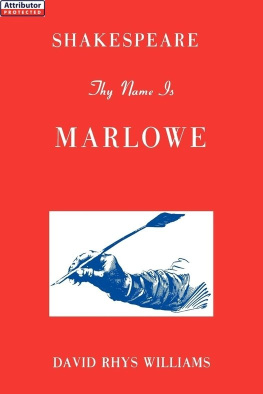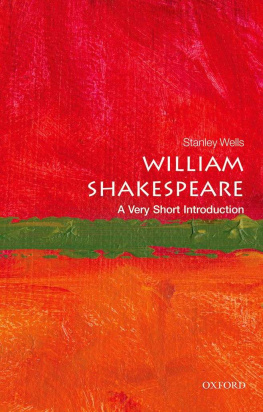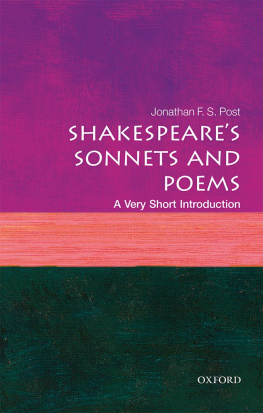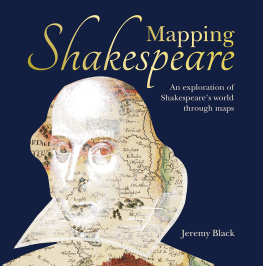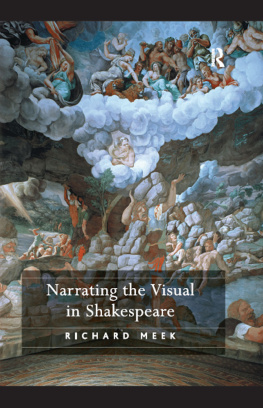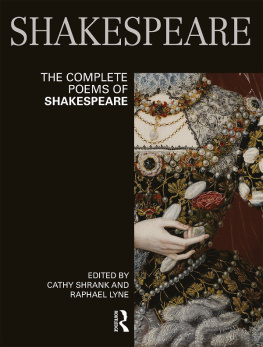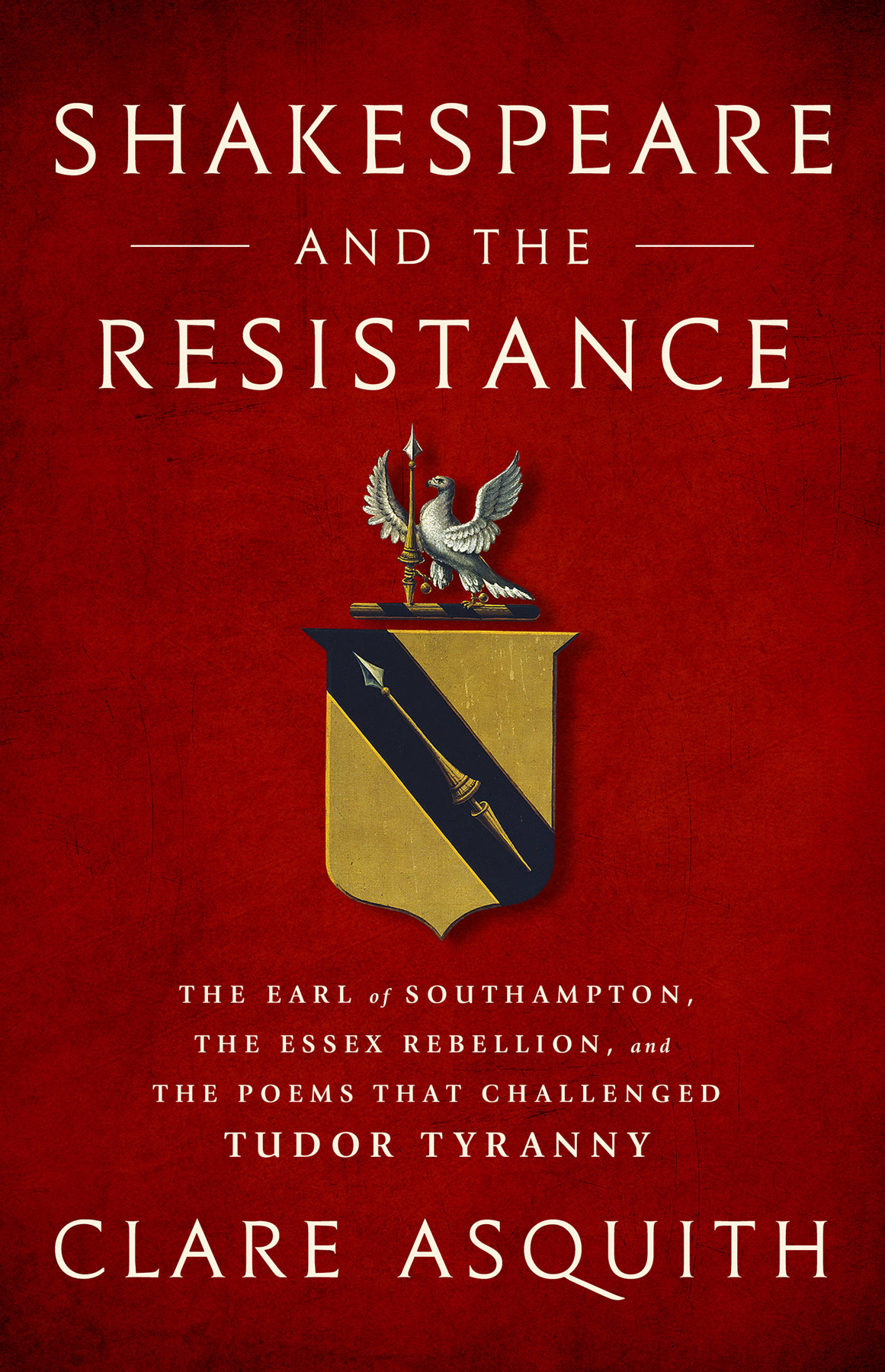Copyright 2018 by Clare Asquith
Hachette Book Group supports the right to free expression and the value of copyright. The purpose of copyright is to encourage writers and artists to produce the creative works that enrich our culture.
The scanning, uploading, and distribution of this book without permission is a theft of the authors intellectual property. If you would like permission to use material from the book (other than for review purposes), please contact permissions@hbgusa.com. Thank you for your support of the authors rights.
PublicAffairs
Hachette Book Group
1290 Avenue of the Americas, New York, NY 10104
www.publicaffairsbooks.com
@Public_Affairs
First Edition: August 2018
Published by PublicAffairs, an imprint of Perseus Books, LLC, a subsidiary of Hachette Book Group, Inc. The PublicAffairs name and logo is a trademark of the Hachette Book Group.
The Hachette Speakers Bureau provides a wide range of authors for speaking events. To find out more, go to www.hachettespeakersbureau.com or call (866) 376-6591.
The publisher is not responsible for websites (or their content) that are not owned by the publisher.
Library of Congress Cataloging-in-Publication Data
Names: Asquith, Clare, author.
Title: Shakespeare and the resistance: the Earl of Southampton, the Essex Rebellion, and the poems that challenged Tudor tyranny / Clare Asquith.
Description: First edition. | New York: PublicAffairs, June 2018. | Includes bibliographical references and index.
Identifiers: LCCN 2018019816| ISBN 9781568588124 (hardback) | ISBN 9781568588117 (ebook)
Subjects: LCSH: Shakespeare, William, 15641616Political and social views. | Shakespeare, William, 15641616Poetic works. | Shakespeare, William, 15641616. Venus and Adonis. | Shakespeare, William, 15641616. Rape of Lucrece. | Politics and literatureGreat BritainHistory16th century. | Political poetry, EnglishHistory and criticism. | BISAC: HISTORY / Europe / Great Britain. | LITERARY CRITICISM / Shakespeare.
Classification: LCC PR3017 .A76 2018 | DDC 821/.3dc23
LC record available at https://lccn.loc.gov/2018019816
ISBNs: 978-1-56858-812-4 (hardcover), 978-1-56858-811-7 (ebook)
E3-20180731-JV-PC
Praise for
Shakespeare and the Resistance
A wonderful book and an important contribution to Shakespeare studies. It flows like a good novel and takes the reader into the argument with scholarship and infectious enthusiasm. The neglected poems have been illuminated by this important commentary.
Michael Scott, author of Shakespeare: A Complete Introduction; honorary senior provost of the University of Wales Trinity Saint David
Compelling. Written with lovely clarity and verve.
Emma J. Smith, professor of English, Oxford University
Continuing her learned and provocative account of Shakespeares religion and politics in Shadowplay, Clare Asquith turns her attention, in this beautifully written and informative book, to the enigmatic narrative poems and persuasively argues that Henry VIIIs Act of Supremacy, the pillaging of the monasteries, and the cruel suppression of every suspected challenge to Tudor hegemony are all referred to in Shakespeares enigmatic Rape of Lucrece. Shakespeare would have been as gripped by such events as Russian writers were gripped by the communist terror, and as unable as they to express his thoughts directly. If you love Shakespeare, England, and our Christian heritage you will want this book by your bedside and that of your guests. Buy the book now, and prepare yourself for long evenings of fertile argument.
Sir Roger Scruton, editor of The Salisbury Review
Another distinguished achievement. Among other things, an excellent narrative of the last poignant months of Essex and his importance to Shakespeare and the Earl of Southampton. Asquith leads the way in impressing on our culture the power of the Catholic presence in Shakespeare and in England.
Dennis Taylor, professor emeritus of English at Boston College; editor emeritus of Religion and the Arts
You dont have to agree with all the bold conclusions of this insightful and enjoyable book to relish its vivid and persuasive argument that we can and should renew our enquiry into Shakespeares complex and disguised responses, under strict censorship, to the fraught and dangerous cultural politics of post-Reformation England.
Sir Michael Boyd, artistic director of the Royal Shakespeare Company, Stratford-upon-Avon, 20032012
Shadowplay: The Hidden Beliefs and Coded Politics of William Shakespeare
For Raymond
T HE PRACTICE OF detecting covert contemporary references and hidden political allusions in the works of Shakespeare has a long and derided history. The Victorian poet Algernon Swinburne joked that Romeo must be a hidden caricature of Elizabeth Is all-powerful minister, Lord Burghley, precisely because of the cunning dissimilarity. Shakespeares universality, the fact that he speaks to us all on a profound level, means that we resent any attempt by academic, social, nationalist, religious, or political groups to appropriate him, to label and therefore limit him. This has not stopped thousands from trying. He has been variously portrayed as an Italian, a covert homosexual, a Jesuit, Francis Bacon, Christopher Marlowe, the Earl of Oxford; he has been by turns a loyalist, a dissident, a Tudor apologist, an atheist, a Catholic, a Protestant, a Puritan, an elitist, a populist, a proto-Marxist, and the love-child of Elizabeth I.
The unenviable task of Shakespeare scholars is to preserve the integrity of the text in the face of this barrage. But two awkward elements stand in their way. One is Shakespeares famously undocumented background, which has been fully exploited by biographical fantasists in particular. The other is the fact that Literary critics locate the genesis of this conflicted material either somewhere in his shadowy private life or in the source of his universalityhis insight into human nature.
Over the past fifteen years, however, certain historianssome of them, like Peter Lake, cautiously deferential, others, like Curtis Breight, angrily incensedhave begun to invade the territory of Shakespeare scholarship. Initially this was to challenge the recent New Historicist angle on the sixteenth century, which aimed to reassess the literature and drama by setting it in what was understood to be the cultural and intellectual context of the time. Normally the first step in studying the creative work of the past, this approach, especially in the case of the context-free Shakespeare, was long overdue. But the historicists found they had stumbled into a hornets nest. Elizabeths reign, the last years in particular, have been undergoing a lengthy and contentious process of reassessment. According to many current historians, the New Historicists were working on an outdated and misconceived version of the period. They had been given the wrong handbook.
Stephen Greenblatts influential 1989 analysis of the plays, Shakespearean Negotiations, drew on a series of long-held assumptions about Elizabeths reign. Power lay with the queen: yet, in material terms, she was weak. She had no standing army, no bureaucracy, and no police force to speak of. She relied instead on theatrical display and rhetorical persuasion: and with such success that, though a weak and feeble woman, she retained power for almost fifty yearsand commanded the devotion of her subjects throughout, which, as she often declared, I do esteem more than any treasure or riches. This was an age, then, when theatricality was the source of power: a great starting point for Shakespeare scholars.


